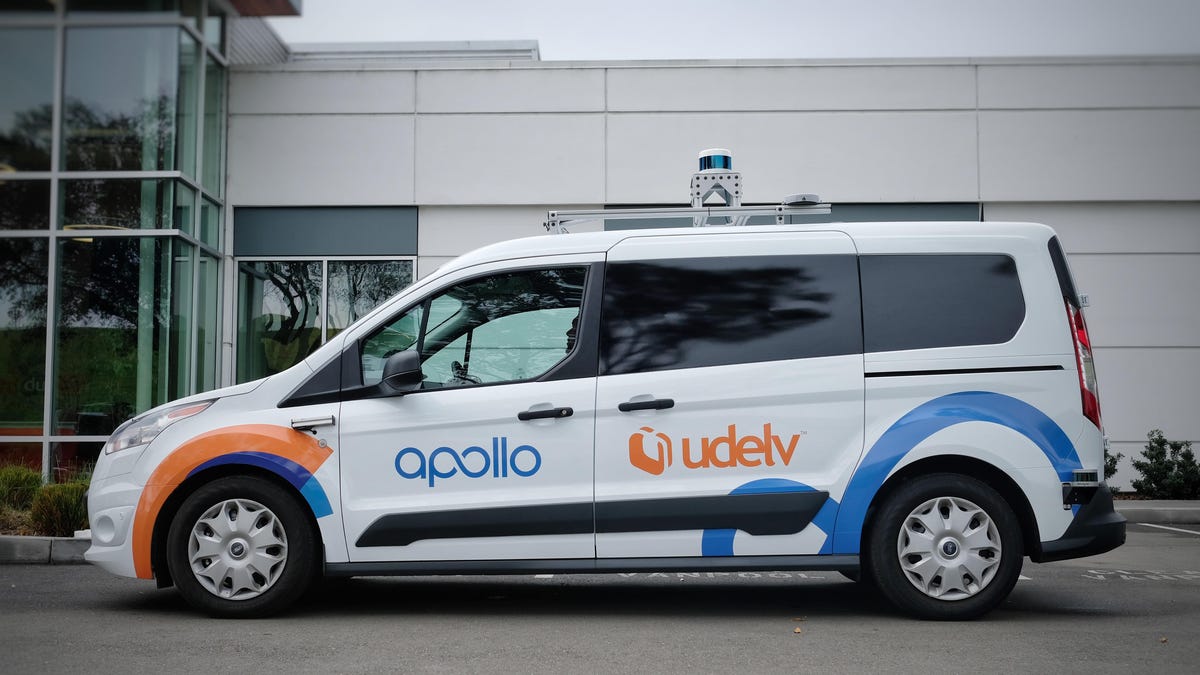Udelv announces second-generation Newton autonomous delivery van at CES 2019
The new Newton boasts more cargo capacity, a larger roaming range and is powered by the latest generation of Baidu's Apollo 3.5 autonomous driving platform.

Startup Udelv has just unveiled the second generation of its autonomous delivery van, the Newton. At CES 2019, the Newton van arrives ladden with news of new partnerships with investors and commercial customers.
We first met Udelv early last year, when the startup launched its pilot program in San Mateo, Calif. with a small fleet of electric delivery vans with smart cargo containers out back. In partnership with a local grocery store, the loaded vehicles could drive themselves to delivery locations and, upon arrival, automatically open the correct compartment for customers to retrieve their package. CES 2019 sees the debut of Udelv's more robust, second-generation vehicle.
Based on a Ford Transit Connect chassis, the Newton will feature a redesigned custom cargo system with more robust dynamic shelving space. It can now carry up to 32 customer orders of varying size at a time, a step up from the 18 fixed compartments of the previous generation.
Walmart and XL Parts have signed on to pilot autonomous delivery van programs in 2019.
The Newton has been retrofitted for Drive-By-Wire autonomous driving and loaded up with all of the sensors and hardware needed to steer and drive itself. Where the old van had a top speed of 25 mph and a range of only about 60 miles, the Newton can get up to 60 mph with an operating zone of about 400 square miles. The higher speed means the Newton will be able to operate on the highway, as well as urban and suburban roads.
The Newton builds on the automated driving technology groundwork laid by the previous generation with a goal of Level 4 autonomy. At CES 2019, we learned that the new model will be powered by Baidu's Apollo's open autonomous driving platform version 3.5, thanks to a newly announced partnership with the Chinese tech giant. Udelv also announced a new investment partnership with Japan's Marubeni Corporation to help the startup continue to scale its production.
In the testing phases and beyond, Udelv is developing a low-latency tele-operations systems that allows a remote operator to monitor a fleet of Newtons and take remote control of the vehicles if the algorithms need a little help. These are delivery vehicles, after all, and folks need their packages on time.
Speaking of customers, Udelv has just announced major commercial deals with Walmart in Surprise, Arizona and XL Parts stores in Houston, Texas to use its vehicles in pilot autonomous delivery programs. Walmart will take delivery of its first vehicles in February 2019 and XL Parts gets their first van sometime later this year. Between these new partners and previously announced partnerships in California, Udlev plans to deploy 100 autonomous delivery vans in 2019 and is currently taking orders for 2020.
CES 2019: Every story so far.
Concept cars: Can't get enough of concept cars? We've got you covered.

